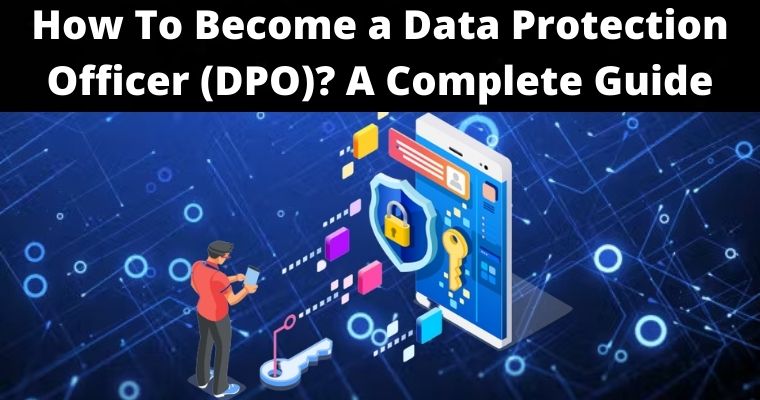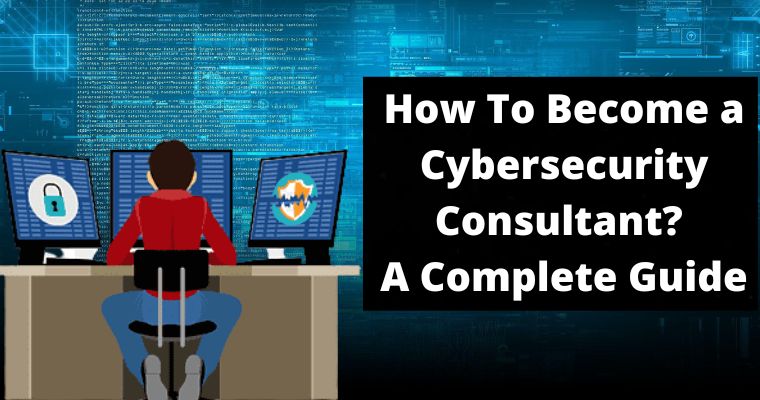Organizations that process and store personal data need to appoint a person called the “data protection officer” to make sure that they are compliant with GDPR.
The data protection officer needs to be able to do things like check if the organization is following regulations, investigate breaches, and respond when people have complaints.
With the increasing use of digital technologies, data breaches are becoming more common. A data protection officer examines the company’s data protection strategy and implementation.
Many organizations have only recently created the data protection officer (DPO) position. The European Union’s (EU) General Data Protection Regulation (GDPR) largely determines the role, duty, and reporting structure of a DPO.
To the frustration of many businesses, the GDPR was implemented on April 14, 2016, and became enforceable on May 25, 2018.
It’s also worth noting that the regulation applies to EU members and any business that sells goods or services to EU residents, whether it be domestically or internationally.
With the GDPR’s demand for a DPO within certain firms, there has been a need in the market for individuals with the required skillset and expertise.
Even if GDPR does not require a DPO, many businesses will choose to have an employee serve as a DPO without formally designating them with this title.
A DPO is required by law in the United States and Canada, and this removes any legal constraints from formally appointing a DPO.
A position holder may still facilitate data protection and data privacy activities as long as they do not fulfill all of the responsibilities of a DPO.
The responsibilities of a DPO may be added to those of an existing well-qualified employee rather than the introduction of a new position requiring a new hire for small and mid-sized enterprises (SMB).
A full-time job for this vital function is frequently established for more influential organizations.
Table of Contents
Who is a Data Protection Officer (DPO)?
A data protection officer is the guardian of an organization’s data protection strategy and implementation. They’re in charge of creating a data protection culture throughout the organization.
They ensure that the company complies with all applicable regulations. While the introduction of GDPR brought greater international exposure to the notion of a formal DPO position, it has long been utilized in privacy-conscious organizations.
Managers must do more than ever. CEOs and other senior leaders are held accountable for data breaches, fines, and compliance, and many companies are now under increased public attention around privacy issues.
DPOs handle corporate data protection, and, as previously said, this top management function is necessary for GDPR fulfillment for certain businesses.
For public authorities and organizations that deal with significant quantities of special categories of personal data, the appointment of a DPO is required.
The language of GDPR says that the size of a company is irrelevant when it comes to needing a DPO. Unfortunately, the GDPR does not offer a clear definition of what is meant by “large-scale” data processing.
Although there are no formal standards for data handling, most experts believe that unless a company’s primary activity is data gathering or storage, it won’t need to employ a DPO.
The DPO should report to the highest management level, according to the GDPR. The DPO must have direct access to senior managers who are making decisions about personal data processing at this level.
The DPO’s primary responsibility is to advise senior management on these issues, and this organizational structure aids in the execution of that directive. Under the GDPR, DPOs are protected against being laid off.
This safeguard guarantees that DPOs are not dismissed from their positions just for carrying out their tasks.
To ensure that the DPO is able to maintain its independence and avoid being forced to conform to other organizations’ interests, it should not be given to legal counsel who is involved in any potential or existing litigation or regulatory action against the firm.
In addition, the DPO should not be given to the company’s chief IT or security manager, as the DPO will be expected to provide candid assessments of the company’s IT and security systems.
A Day in a Data Protection Officer’s Life: What do they do?
An external data protection officer is an expert who advises a company on how to meet its legal obligations in terms of data processing.
The data protection officer ensures that a company follows all legal requirements for collecting and handling personal data. Attachments and document management – GDPR:
A DPO is in the mission of educating the organization and its employees about compliance, instructing individuals who work with data and conducting routine security checks.
DEOs are often the data protection officer (DPO) for their organization. They may also serve as a connection between the business and any supervisory authorities (SAs) that oversee activities related to data.
A DPO is a data protection and privacy evangelist for an organization. In addition, the DPO may be placed in a position that is at odds with other company department leaders’ key performance indicators and agendas.
This job requires someone who is both strong-willed and skilled at negotiating with and establishing common ground among other leaders.
Their daily tasks include:
- They want to ensure that your staff is aware of their personal data usage and how it affects them.
- Assessing the company’s data protection policies and procedures; keeping track of them
- receiving updates from the legal, IT, and data security teams; conducting DPIAs (data protection impact assessments), as needed; Assessing whether a change in strategy is necessary.
- Complying with the laws and regulations of the country in which it is based; and
- Providing a point of contact for individuals concerned with privacy.
A Career Path to Becoming a DPO
Being a data protection officer necessitates fulfilling certain conditions and responsibilities. A data protection officer is in charge of educating staff about their obligations regarding data security.
A DPO is also charged with informing data subjects about how their data is being used, the firm’s security measures, and their right to have their information deleted.
To become a data protection officer, you must first obtain a degree in information technology or have extensive IT management experience.
The following is a list of common educational, employment, career path, and professional certifications sought by job seekers:
- A bachelor’s degree in information security, computer science, or a similar discipline is required. A bachelor’s degree or J.D. or the equivalent in privacy, compliance, information security, auditing, or a closely related specialty is usually needed.
- Promotion to DPO may be reasonably sought after 10+ years of expertise in the various privacy disciplines (e.g., privacy program and policy, privacy law, information governance, incident response, information security, training, and awareness).
- One or more International Association of Privacy Professionals (IAPP) certifications, such as CIPP/E, CIPP/US, and CIPM, may be necessary. ISACA certifications in governance and risk management (e.g., CRISC, CGEIT) are sometimes preferred.
- Work experience may be required that includes five or more years in privacy or compliance-related risk management roles. Candidates with relevant backgrounds and expertise will be preferred, although this is not always the case.
- Other vital areas may receive consideration (e.g., finance, business administration, information technology, etc.) as long as the candidate can show how their prior experience relates to this information security-focused position.
DPO-related Courses and Training
Demand for data protection officers and privacy professionals has increased dramatically since the European Union’s General Data Protection Regulation (GDPR) came into force.
This has resulted in all regulated companies and organizations hiring Data Protection Officers (DPO) to ensure that they remain GDPR compliant, avoiding the risk of significant penalties.
To be a competent data protection officer, you must first obtain appropriate certified data protection officer training and learn the necessary skills and abilities. A training course will go a long way toward assisting you in passing the GDPR examination.
An online GDPR data protection officer training program will teach you everything you need to know about GDPR’s technological requirements, as well as provide you with experience in the job and the responsibilities you’ll be charged with.
After two years of experience, data protection officials with a PECB Certified Data Protection Officer credential can skip the training courses and sit for the exam.
Unexperienced DPOs, on the other hand, must first pass training courses to obtain the credential of a ‘PECB Certified Data Protection Officer.’
Exclusive Skills of a DPO
The successful DPO candidate should understand the GDPR, as this is the most essential aspect.
Even if a candidate does not have a thorough grasp of GDPR in and of itself, an understanding of this de-facto standard for data privacy requirements will be used by many employers to gauge suitability for the position.
DPOs are in great demand among businesses, especially those that need to comply with GDPR standards.
The following is a list of topics for data protection officer certification: “The data protection officer shall be designated on the basis of professional qualities.
In particular, expert knowledge of data protection law and practices and the ability to fulfill the responsibilities imposed upon him or her by this Regulation.”
This position comes with a number of obligations under Article 37 of GDPR. Several experts believe that a DPO should be a licensed attorney with extensive knowledge of GDPR and other privacy laws relevant to the company.
At the very least, a background in law is beneficial when it comes to comprehending and interpreting the complex legal standards surrounding data privacy.
A DPO must also be aware of how the various rules and regulations are interpreted and implemented in the case of law and understand what they say.
The security concerns that come with data privacy are dependent on the size of your business and the industry you operate in.
The DPO must have a thorough knowledge of the company’s business operations and data handling demands in order to manage an organization effectively certification. Fluency in your chosen language, not just technical ability, is required.
It’s also vital to be knowledgeable about your target company and the sector you’re interested in working in.
The inherent benefits of working with a DPO that has this particular firm and industry expertise put significant pressure on senior management to acquire an in-house DPO rather than outsourcing it.
Although technical knowledge is not considered to be a key attribute, a DPO should have practical experience in the field of cybersecurity. A robust cyber security resume is essential.
It should include information on the candidate’s experience responding to actual security events and their ability to provide helpful guidance on risk assessments, countermeasures, and data protection impact analyses.
Although security is a critical aspect of GDPR, it is only one part of the overall legislation.
Individuals with a security background are often narrowly focused on external threats and lack the legal or customer service expertise needed to fulfill the many demands of this vital position.
Job Description of a Data Protection Officer
This position will require someone that has a thorough knowledge of GDPR and a legal background in the privacy field. They will have verifiable security or privacy-related professional qualifications.
The candidate will have one or more IAPP or ISACA qualifications. Established connections with data protection and privacy authorities in other countries are preferable.
The candidate must be able to demonstrate the ability to pick things up quickly. This position will need the ability to grasp Company policies and procedures for collecting and distributing personally identifiable information (PII).
The DPO candidate must have demonstrated expertise in one or more of the following areas of data protection, privacy protection, cybersecurity, information security, and regulatory compliance.
The responsibilities of a data protection officer include:
- Assist businesses in understanding the legal, regulatory, and public policy implications of their data-related decisions. Also, to provide in-house legal advice on privacy, privacy by design, data sharing, and data transfer.
- Engaging in the drafting, negotiating, and reviewing of any commercial agreement containing protected information.
- Providing advice and drafting data protection-related documentation, such as contract due diligence for GDPR or CCPA.
- Assisting with the drafting of legal documents, internal codes of conduct, and other guidance for new reporting/data tracking requirements in order to assist HR staff in implementing these changes.
- Knowledge of all applicable privacy regulations
Data Protection Officer Salary
If you want a data protection job, you’re in luck since it’s necessary for businesses that conduct constant and regular processing of user data as one of their key activities to employ a data protection officer.
You’ll be able to demonstrate your expertise in the data protection and privacy field by becoming a Certified Data Protection Officer. A certificate can help you get the position and put you a step ahead in the process.
A DPO is required by law for both online and offline companies that maintain and analyze user data on a regular basis. Similarly, it is necessary for organizations that conduct large-scale data processing.
The categories of organizations that fall under the General Data Protection Regulation (GDPR) are those that handle sensitive data such as health records, criminal convictions, data connected to children, and so on.
When you become a data protection officer, you may work for these sorts of businesses and organizations.
According to Glassdoor, the highest payscale for a Data Protection Officer in the United States is $125,283 per year, with an average salary of $107,321 per year.
As of January 23, 2024, the average hourly pay for a Data Protection Officer in the United States is $19.32.
The above figures suggest a dynamic landscape with potential variations in salary trends.
Wrap Up
The data protection and privacy rights field is exploding. Data protection officers are in great demand.
There is frequently a scarcity of explicit direction in constructing hiring standards for a new DPO, especially since this is a new job for many enterprises.
This leads to a situation in which a candidate who can educate a business on what is required, what the role should include, and even how much the DPO may benefit the firm is highly desired.
The demand for DPOs appears to be increasing at a rapid rate, and it will continue to do so in the near future. The need for DPOs seems to be rising at a rapid pace, and it will continue to do so in the near future.
According to PricewaterhouseCoopers, this new role is “expected to grow eight times faster than the average job over the next decade.”
As a result, many qualified individuals are deciding to leave the compliance profession and join DPO companies.
However, it is becoming clear that not all of these professionals understand the laws and regulations that govern their responsibilities.
In fact, one executive stated: “Even though we provide training to our DPOs on a regular basis, some still think that their role is just to be a point of contact and not provide any advice.”
The truth is that a DPO is, in fact, considered an officer of the company. They have a duty to report any violations within the company and may be held personally liable if they do not.
The DPO is not a “point of contact” but an independent officer at the company whose duty is to advise the company on how they can comply with data protection laws.




